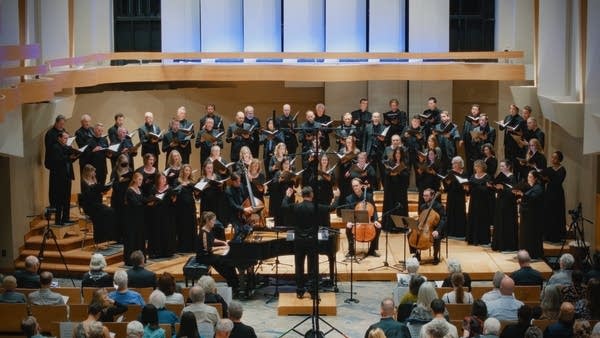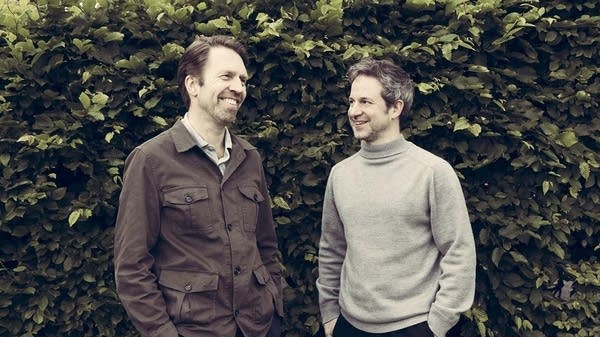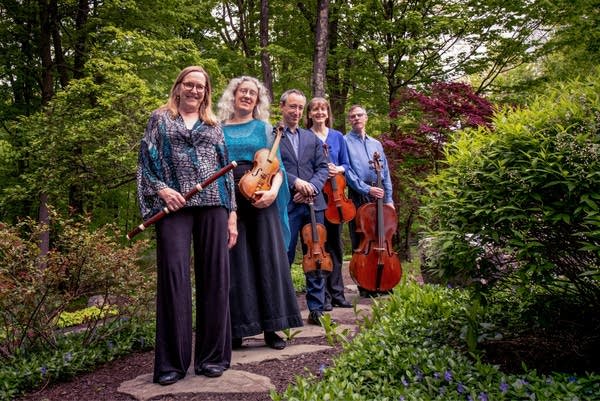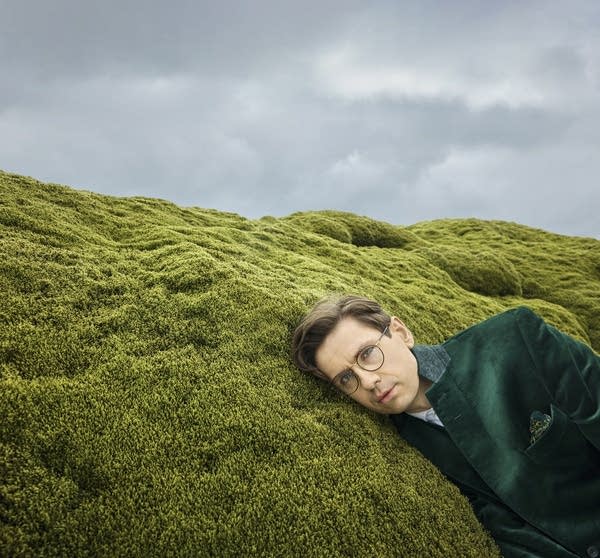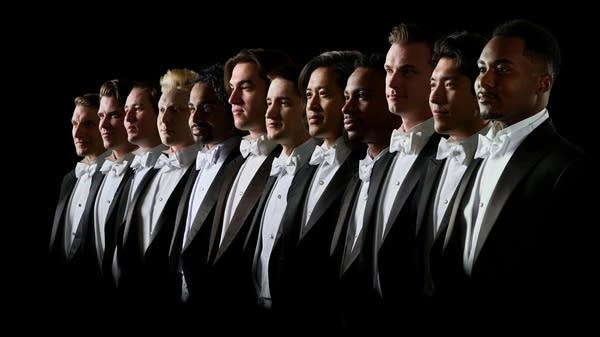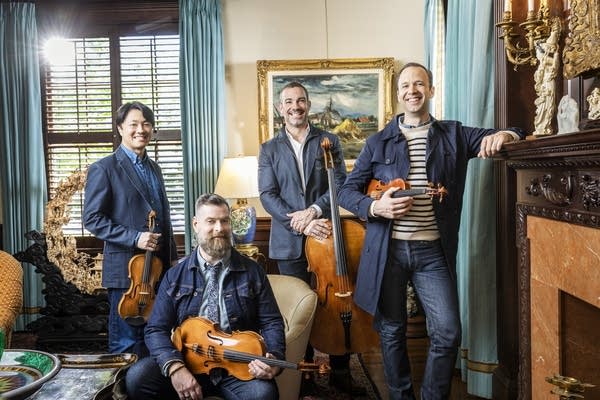Cypress String Quartet - Beethoven: The Middle Quartets (Avie 2318)
"It takes a lifetime to get to know this music," says violinist Tom Stone of the Cypress String Quartet. "It's not a question so much of mastery as it is of depth of understanding."
Cellist Jennifer Kloetzel agrees. "Our life is much more like, 'How do you feel after the 40th performance of a Beethoven quartet?' What does it mean to you then? What is the world opening into, this world of music?"
Tom Stone and Jennifer Kloetzel have been performing with the Cypress String Quartet for 19 seasons. They recently released their 16th recording, a three-CD set of Beethoven's middle quartets. Tom recalls it was the composer's late quartets that first inspired these musicians and that's why they recorded those first.
"When we started, we were all so in love with Beethoven's late quartets that we couldn't imagine waiting for them and working to them," he says. "Getting to know Beethoven, having already seen how the story ends, has given us an insight into the middle quartets. Now we're also working on the early quartets — I love telling the story backwards. It has been just such a joy and an interesting experience."
Tom says Beethoven's middle quartets were written during a very tumultuous time in the composer's life. "Everything changed — in 1802, he wrote his Heiligenstadt Testament when he was going through a huge personal crisis," he explains. "[Beethoven] decided to carry on and he began to identify with the hero's story, and his middle quartets take on a grandeur you don't see in his earlier music. Beethoven was a theatrical composer from the beginning, but he goes to much greater lengths in these quartets than he had done before. In the last one, Op. 95, it's almost like someone grabs you by the throat."
"There's a lot of willfulness to these pieces, but there's great depth and charm and beauty and humor — it's a world in each one of these pieces," Jennifer says. "It's like a journey you've gone through. When we walk off stage after playing one of these middle quartets — I feel like, 'Oh wow, I just went through something.' I'm having an emotional reaction to what just happened to me. And you think this music is from 1806 and 1808 and it's still meaningful. Incredible."
After almost every performance, Jennifer says the audience also has a very powerful reaction. "There's something about Beethoven's slow movements," she observes. "People will say time stopped for me. It's always an emotional experience."
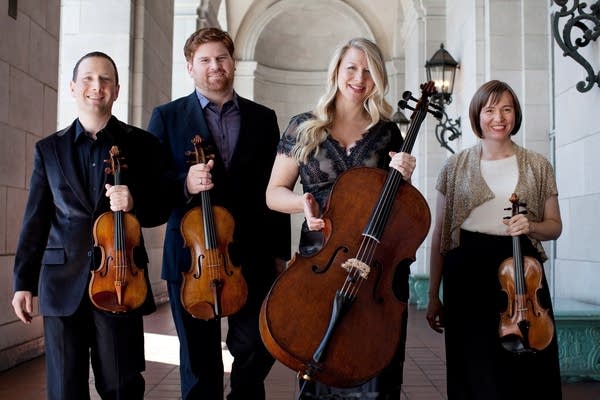
Beethoven once claimed it was the night sky full of stars that inspired the slow movement from the Quartet, Opus 59, no. 2. Tom agrees it truly is otherworldly. "When I think about that movement in particular it gives me the shivers," he says. "It stops time and gets you in touch with the divine in a way that can only happen in a few ways. There aren't that many things that do that, and that movement is one. That whole quartet is so magical. It starts off in an incredibly serious and abstract manner. It ends with charm and fun and humor. Beethoven is trying to set up these huge contrasts."
These middle-period quartets are quite challenging. Tom says it's because Beethoven was writing these works for the first professional string quartet, which was employed by a Russian ambassador named Razumovsky. "They were the greatest musicians of the day. And before that, string quartets were written for amateurs. But having heard this quartet, Beethoven's imagination for the quartet completely changed. These guys could do anything. So he wrote the most challenging and difficult music — they didn't even realize they could play it … they thought he was playing a joke … but they must have been up to the task because they did it. It changed the direction of quartet writing and musical writing that amateurs couldn't dream of playing."
One of those challenges is the incredible fugue that closes out the third quartet of Opus 59. "Beethoven wasn't really great at fugues when he started off," Tom explains. "He had to work hard to develop his ability to write them. But Haydn, in his early quartets, ended them all with fugues. A nod to Haydn, as much as anything."
"That fugue is amazing," Jennifer adds, "It goes like the wind, it's bubbly, upbeat, fun, exciting."
"About the most rousing finale you could imagine," Tom concludes. And he agrees it is refreshing to think that Beethoven actually had to work at writing this fugue. "There are so many things that are great and comforting about Beethoven, beyond his music," Tom says. "He had to struggle to be a great composer. He worked every day at it. It just goes to show — if you work hard at things, you can do all kinds of things."
That's as true for Beethoven as it is for this invigorating young ensemble who love to play his music.
Love the music?
Show your support by making a gift to YourClassical.
Each day, we’re here for you with thoughtful streams that set the tone for your day – not to mention the stories and programs that inspire you to new discovery and help you explore the music you love.
YourClassical is available for free, because we are listener-supported public media. Take a moment to make your gift today.
Your Donation
About New Classical Tracks®
Host Julie Amacher provides an in-depth exploration of a new classical music release each week.
Subscribe on Apple Podcasts, TuneIn, Radio Public, or RSS.


